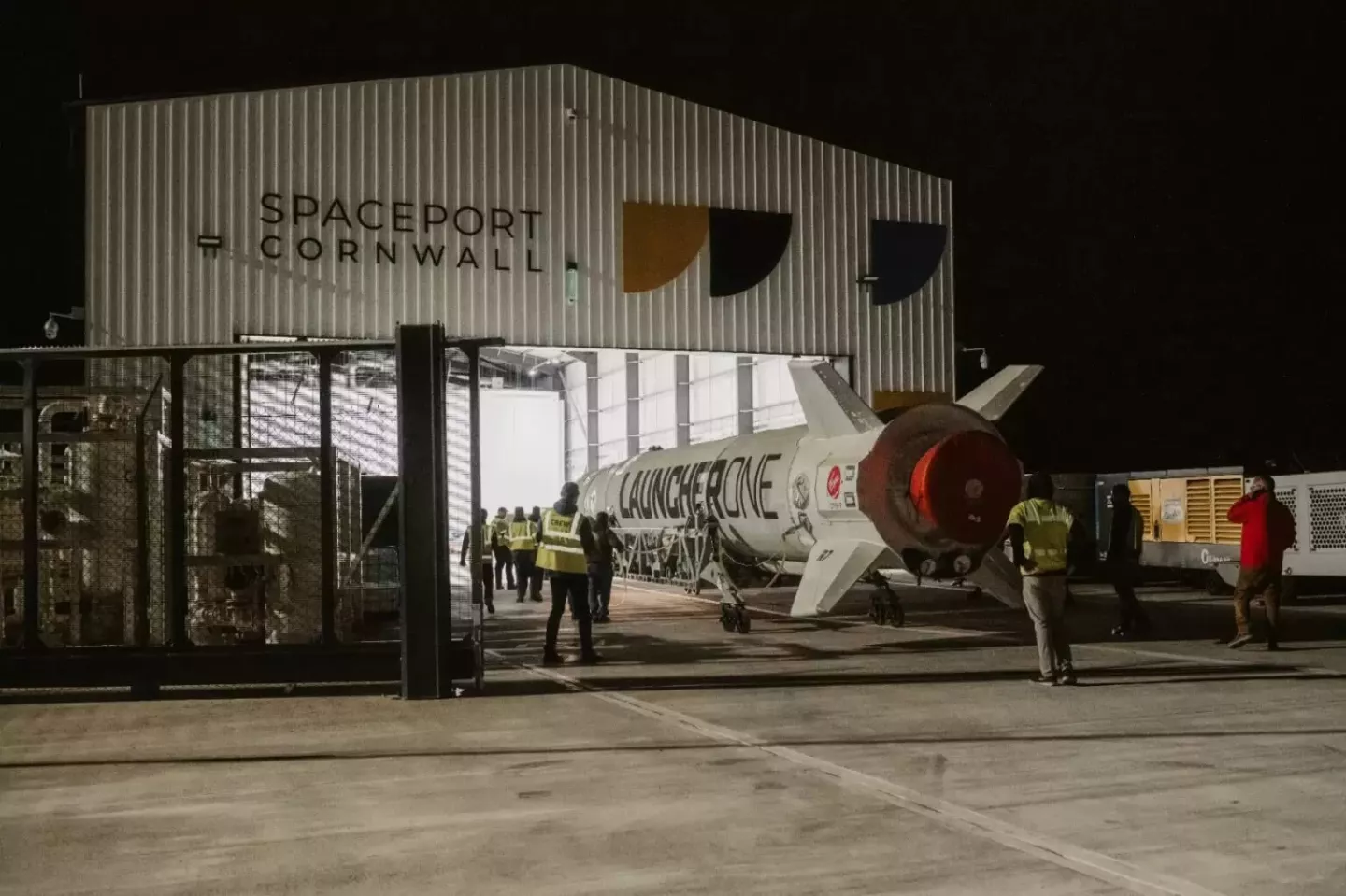Britain's attempt to launch its first orbital rocket in over half a century and the first from UK soil failed today as the second stage of the mission's Virgin Orbit rocket malfunctioned due to an undisclosed problem.
The Start Me Up mission began at 20:02 GMT as it lifted off with test pilot Mathew "Stanny" Stanford and co-pilot Eric Bippert at the controls of Cosmic Girl, a converted Boeing 747-400 airliner serving as a mothership to deploy Virgin Orbit’s LauncherOne rocket. Also aboard were flight engineers Dayle Alexander and Bryce Schaffer to oversee operations.
The LauncherOne rocket was dropped from Cosmic Girl at about 23:09 GMT over the Atlantic Ocean off the coast of Ireland at an altitude of 30,000 ft (9,100 m). The first stage ignited automatically and burned for three minutes. After separation, the second stage was programmed to carry out two burns totaling six minutes to put the payloads into the desired circular orbit at an altitude of 345 miles (555 km). However, Mission Control has announced that after the first burn, the stage suffered a malfunction that prevented it from reaching orbit.

The first and only time that Britain launched a rocket into orbit was on October 28, 1971 when a Black Arrow booster lifted the Prospero satellite into space from the Woomera Prohibited Area in Australia. However, by the time Prospero had reached orbit, the British government had cancelled the project for economic and diplomatic reasons and UK space efforts turned toward the building of spacecraft, becoming the second biggest manufacturer after the US.
That changed as the UK Space Agency (UKSA), Cornwall Council, the Royal Air Force, and Virgin Orbit entered into a partnership to establish commercial space launching operations from Cornwall. This involved not only developing the launch infrastructure, but also getting the legal and regulatory clearances to make operations involving the rapid launching of small satellites on demand practical.
At a cost of about US$12 million per launch, LauncherOne is a 70-ft (21.3-m), 30-tonne, US-built, liquid-fueled, two-stage rocket that is capable of lifting 1,100 lb (500 kg) into Low Earth orbit or 660 lb (300 kg) into a Solar Stationary Orbit.

Today's orbital launch attempt, which was also the first from anywhere in Western Europe, is the fifth Virgin Orbit launch intended to carry private or government payloads into orbit. Start Me Up, named after a 1981 Rolling Stones song, carried an international collection of payloads, including Britain's IOD-3 AMBER to provide space-based Maritime Domain Awareness (MDA) data to users, UK Ministry of Defense’s (MOD) Defense Science and technology laboratory's (Dstl) Prometheus-2 twin CubeSats, the Coordinated Ionospheric Reconstruction CubeSat Experiment (CIRCE) satellite for Dstl and the US Naval Research Laboratory, the British RHEA group's DOVER global navigation system SmallSat, ForgeStar-0 space-manufacturing platform for Space Forge of Wales, Oman’s first orbital mission called AMAN, and the STORK-6 satellite for the Polish Small Satellite manufacturer and operator SatRev.
The video below is the live feed of the launch.
Source: Virgin Orbit













